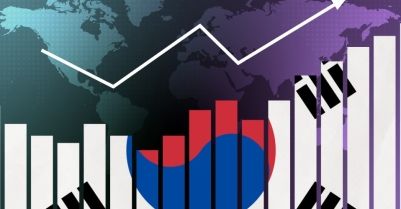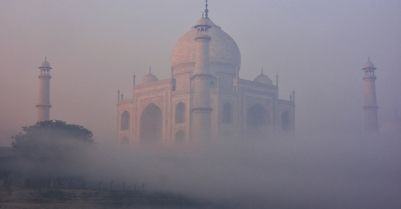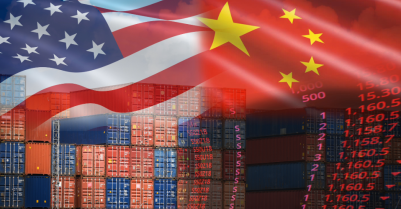-
View article
 #Economy
#EconomySouth Korea: a year after the political crisis, markets are buying the promise of stability
2025/12/17
Geopolitics, pandemic and contextual intelligence
Buffeted by the uncertain public health situation, economists are trying to sort out the winners from the losers in the crisis based on what is coyly referred to as the “irreparable harm” done to economies. In the geopolitical arena, the impact of the crisis is measured in terms of power and strategy. How has a year of Covid-19 changed the existing dynamics? And there’s obviously the Biden affect to consider too. This article sets out some foundational thoughts and will gradually be followed up by articles focusing on more specific themes.

The public health crisis has moved the goalposts in the power game
While there is no consensus among political pundits on the definition of power, we might say it oscillates between two poles: the ability to impose one’s will and the ability to persuade others. Since the 1950s, geopolitical power has successively been defined as the ability to get others to do what they would not otherwise have done, the ability to impose an international agenda and provide related solutions, and finally the ability to influence others’ desires by modelling preferences and aspirations. This is a similar idea to what Bourdieu called “symbolic power”[1]. The geopolitical battle is thus also fought around the ability to persuade the world of what is “orthodox” and what is not, in every area. A hegemonic power struggle is a global battle between competing dogma.
All these dimensions of power were more or less summed up by Joseph Nye[2] in the expressions “hard power” (which carries the notion of coercion), “soft power” (which encompasses the ideas of shaping the agenda and appealing to and persuading others) and “smart power” (a blend of soft and hard power that can be used to impose standards, notably in the legal domain).
Furthermore, this definition – influenced as it is by technological innovation, which gives rise to new instruments of power, changes the nature of political action and opens up new areas of struggle – is subject to change. Lastly, power depends on governments’ strategies. And since war has become total, geopolitical struggle no longer knows any bounds. Chinese general Qiao Liang came up with the idea of “unrestricted warfare” in a book that was a bestseller first in China and then all over the world: “a single man-made stock-market crash, a single computer virus invasion, or a single rumor or scandal that results in a fluctuation in the enemy country’s exchange rates […], all can be included in the ranks of new-concept weapons. […] We believe that some morning people will awake to discover with surprise that quite a few gentle and kind things have begun to have offensive and lethal characteristics.”.
Spelling out these changing, interacting dimensions of power helps us better understand the huge geopolitical impact of the pandemic, not just because it began in China but above all because the virus pulls every one of these geopolitical levers – hard power, soft power and smart power – at the same time. Moreover, two phenomena born of the pandemic are redefining citizens’ preferences and fears and thereby having a major impact on perceptions of power: on the one hand, the risk of shortages, and on the other, governments’ efforts to achieve independence in areas considered strategic (energy, healthcare, technology, food, and so on). The public health crisis will thus deepen geopolitical fault lines – some of them already in existence but now aggravated, others brand new and raising serious consequences and questions for businesses and citizens alike, particularly in the area of human rights. One of these trends is the shift in the global centre of power towards Asia.
The decentring of the world is accelerating, not just to China’s geopolitical benefit
Historian Fernand Braudel showed that major crises provide opportunities for shifts in the world’s civilisational centre of gravity. While the shift towards Asia was already underway before Covid-19 came along, the crisis has speeded up this process; and, unless China’s economy collapses, a roaring economic recovery in the United States will not make much difference. It was already obvious that this is an “Asian century”[3] with Asia’s share of both global GDP and the world’s population surging.
Let’s be clear: the “Asian century” is about Asia as a whole, not just China. Of course, this great reversal is linked to China’s economic ascent, set against America’s declining geopolitical power, accelerated by the growing disenchantment with globalisation, liberal capitalism and democracy in general. However, with South Korea, Taiwan and Singapore among the winners in the crisis[3] in terms of public health, economics and governance, the pandemic has changed geopolitical perceptions of Asia. You have to remember the institutional trajectory of these countries to understand the kind of “model” under which they operate – a model characterised by a mix of authoritarianism and liberal capitalism, and subsequently a relative democratisation, the specific nature of which has contributed to the success of digital capitalism.
Affirming “buffer powers”
In the global collective imagination, there is not going to be any one political model that wins out against the virus in Asia – a fact that will erode the symbolic capital China is seeking to accrue as it celebrates its victory over the virus. In addition, the microprocessor shortage highlights the role of these East Asian countries – to which we must add Japan – in the electronics value chain. While clearly not competitors in the race for hegemony, they are now “buffer powers”, like all countries lying along gulfs that are of strategic importance for the transport of energy. Thanks to the pandemic, this concept of buffer countries has taken on great importance.
Moreover, the fact that these countries are in the “Western camp” increases the threat to China of geopolitical containment, named after NATO’s strategy on Russia. Unsurprisingly, then, the past few months have witnessed intense political activism in the region, originating in both Washington and Beijing, with the former seeking to rekindle alliances through Quad[5] while the latter tries to avoid geopolitical isolation by finding areas for commercial cooperation. This was the idea behind RCEP (Regional Comprehensive Economic Partnership) – a free trade agreement which has nevertheless not prevented a build-up of military tensions around Taiwan and in the South China Sea more generally, with Beijing still determined not to give up the fight for control over its near neighbour.
Symbolic capital has already been essential to China’s geopolitical ascent, with some countries seeing the Beijing consensus as an alternative to the Washington consensus, which Western countries themselves have pronounced dead. In Africa, China’s ability to leverage infrastructure to help countries break free from poverty has helped it accumulate a store of popularity. Yes, the debt trap is very real and China’s vision has turned negative; but vaccine diplomacy will nevertheless be used to gain just the same kind of leverage all along the Silk Road. By way of evidence, the streets of Belgrade are adorned with billboards thanking “Brother Xi”. At the same time, the West’s public health difficulties are creating opportunities for China – and others – to accumulate this kind of symbolic capital.
Just like for individuals and businesses, geopolitics is all about both relative power and governments’ ability to take advantage of opportunities in a crisis: “Machiavellian and organizational skills are essential, but so is emotional intelligence, which produces the skills of self-awareness and self-control, and contextual intelligence, which enables leaders to understand an evolving environment, capitalize on trends, and apply their other skills accordingly[6].” It remains to be seen whether human rights diplomacy can help the Western alliance build up a fresh store of symbolic capital, and whether so-called secondary powers – such as Israel, the United Arab Emirates, India, Pakistan and Turkey – are able to more quickly take advantage of geopolitical opportunities than China, the United States, Russia and Europe.
Tania Sollogoub
tania.sollogoub@credit-agricole-sa.fr
[1] For all matters concerning symbolic power, see the fascinating book Comment la Chine conquiert le monde by Roromme Chantal, published by Les Presses de l’Université de Montréal in November 2020.
[2] The Future of Power, PublicAffairs, 2011
[3] The Asian century is set to begin, Financial Times, March 2019
[4] The question of India will be covered in a separate article
[5] Quad: the Quadrilateral Security Dialogue established in 2007 between the United States, Australia, India and Japan to act as a counterweight to Chinese power
[6] Nye, Joseph S., Trump's Effect on US Foreign Policy, Project Syndicate, 4 September 2019








